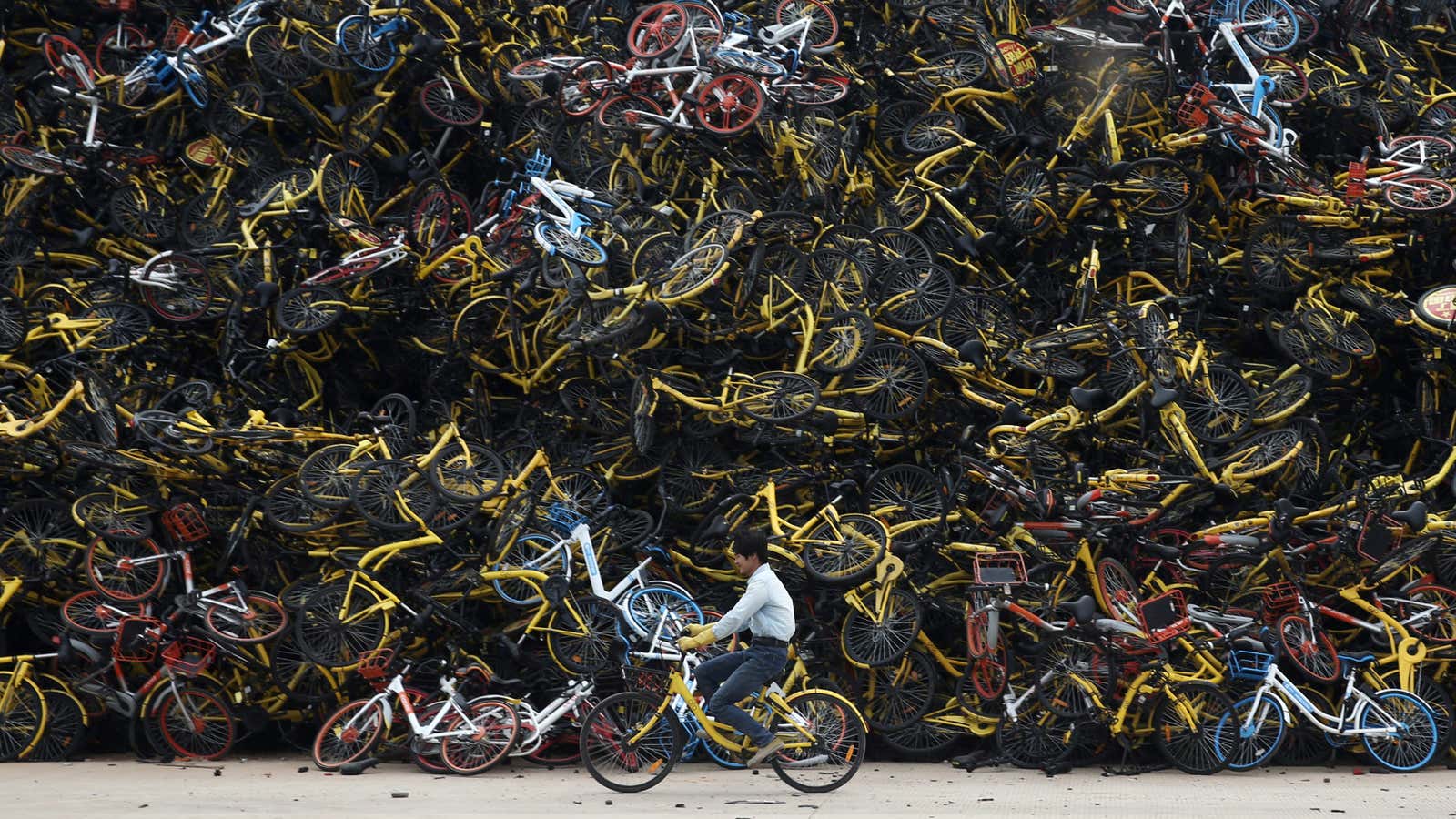China has announced its character of the year, and the winner is 享 (xiang), meaning “share.”
It’s a nod to the so-called “sharing economy” in China. “The popularity of on-demand bikes and the boom of the sharing economy brought visible benefits to people and explained the meaning of common prosperity,” boasted a committee led by a national language research center, when it published a shortlist of contenders for a written character that summed up the nation’s character in 2017.
The words were chosen in a combination of popular votes and input from a panel of experts including linguists, editors and professors. The winners were announced yesterday (Dec. 21).
In China, startups with the term “sharing” in their names have mushroomed over the past few years, ever since ride-sharing became a thing across the globe. The basic model of the likes of Uber is that the companies don’t own the cars but instead, via apps, act as intermediaries between commuters and drivers. Sharing startups in China, however, have evolved into a “new” form: they themselves own stuff and provide customers with the right to use them for a fee, whether we’re talking bikes or balls or beds. Sounds familiar? Elsewhere in the world, we might call these rental services. (Even when it comes to the originators of sharing, as a court recently ruled on Uber, the tech and sharing overlay doesn’t mean they’re not what we’d all once have just called a transport company.)
China’s sharing—or rental—economy is a bubble waiting to be burst. While the nation’s two leading bike-sharing firms, Mobike and Ofo, have entered talks about a possible merger, smaller players are starting to shut down their operations, without returning deposits to customers. A crop of umbrella-sharing startups are losing most of the umbrellas they made available for rent. And it’s still a mystery remain unsolved how any of these sharing businesses is going to make money, despite the influx of venture capital.
Other contenders for 2017’s characters and words also reflect the newest trends in China’s tech scenes. They include 云 (yun), which means “cloud” and stands for cloud computing, and 人工智能 (rengong zhineng), or artificial intelligence.
Of course, the nominees are always perfectly in harmony with the Communist Party’s policies, as you might expect. President Xi Jinping’s catchphrase “original aspiration,” for example, is chosen the Chinese word of 2017. Some of his favorites, such as “new era” and “a community of shared future for mankind,” are also in the shortlist.
